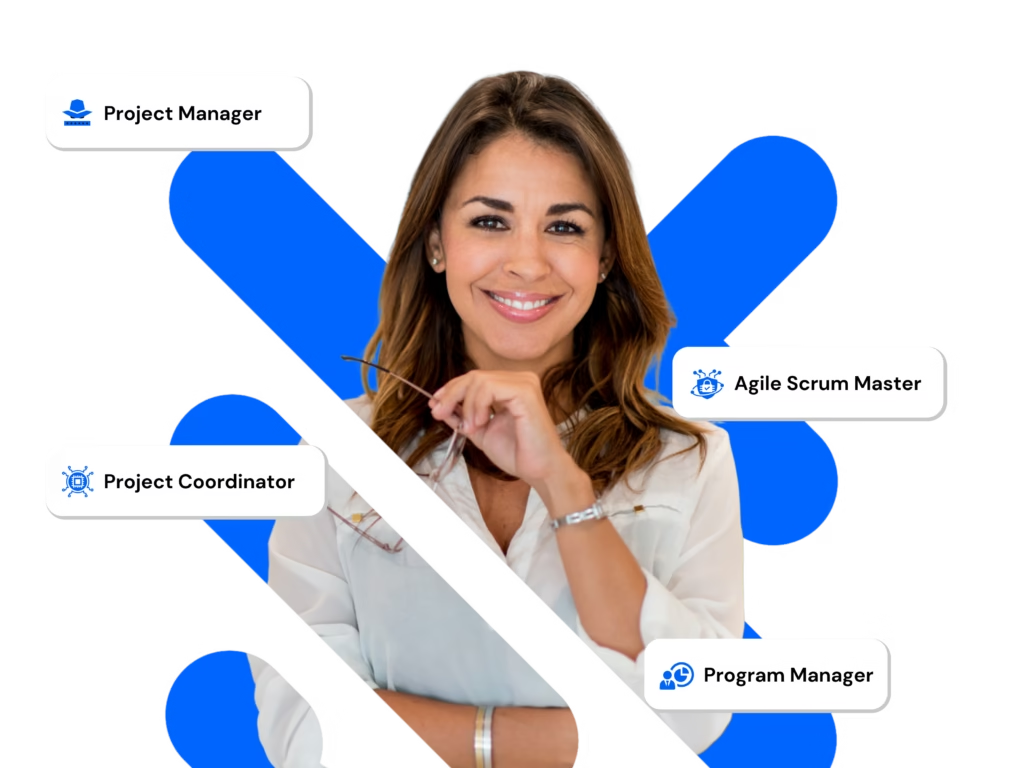In the quickly changing business environment of today, companies are depending increasingly on agile methods to maintain their competitiveness and provide value effectively. A widely recognized certification that denotes advanced proficiency in Scrum is the Professional Scrum Master II (PSM II) certification from Scrum.org. It goes beyond basic knowledge to prepare people to lead groups through difficult situations, encourage cooperation, and improve organizational agility. PSM II certification is a significant milestone for individuals hoping to assume leadership roles in agile-driven organizations since PSM II-certified professionals are prepared to impact not only their immediate teams but also larger organizational processes.
Table of Contents
What is PSM 2 Certification?
Scrum.org offers the Professional Scrum Master II (PSM II) certification, an advanced-level certification that attests to a professional’s proficiency in using Scrum concepts in challenging, real-world situations. PSM II places more emphasis on advanced abilities, including servant leadership, team mentorship, conflict resolution, and scaling Scrum methods across numerous teams, than PSM I, which concentrates on fundamental Scrum knowledge. It examines not only theoretical knowledge but also problem-solving, leadership, and practical application skills. Obtaining PSM II proves that people can lead high-achieving teams, promote organizational agility, and produce commercial value in demanding and changing environments.
Topics Covered in PSM 2 Certification
The Scrum Master Competencies and the Scrum Guide are in line with the PSM II assessment. The key components include:
Understanding and Applying the Scrum Framework
PSM II emphasizes advanced techniques that go beyond managing ordinary events and relies on a thorough comprehension of the Scrum methodology. By efficiently managing the product backlog and making sure that the highest-priority items are delivered first, certified experts are expected to optimize the value of their labor. Additionally, they must be able to manage and coordinate several Scrum Teams working on the same project while resolving issues with dependencies and alignment. This guarantees that Scrum is not only put into practice but also used in a way that improves teamwork, openness, and delivery effectiveness throughout the company.
Developing People and Teams
Using servant leadership to grow teams and individuals is a crucial component of PSM II. By employing coaching and mentoring strategies that support team members’ development and high performance, Scrum Masters are educated to create empowered, self-organizing teams. Another essential ability is conflict resolution, since qualified professionals need to handle conflicts in a way that preserves cooperation and trust. This emphasis guarantees that teams are not only efficient but also always getting better, able to produce high-quality results while adjusting to shifting project requirements and organizational difficulties.
Managing Organizational Change and Stakeholders
PSM II prepares professionals to collaborate with stakeholders and promote organizational transformation by highlighting the Scrum Master’s responsibility outside of the team. As they navigate the difficulties associated with agile adoption, candidates learn how to scale Scrum across numerous teams and departments. They acquire the capacity to convince CEOs and company executives, bringing expectations into line with Scrum Teams’ skills. By creating an atmosphere where cooperation and openness are prevalent throughout the company, this guarantees that Scrum adoption is strategic, long-lasting, and effective, facilitating successful agile transformations at scale.
Agility Beyond Scrum Teams
Professionals with PSM II certification are supposed to promote organizational agility outside of specific Scrum Teams. They gain knowledge about how to put into practice strategies that promote cooperation, flexibility, and ongoing development at the corporate level. As the emphasis shifts from merely finishing activities to providing genuine value, measuring and enhancing company outcomes becomes important. Along with overcoming organizational skepticism and inertia, scrum masters also have to deal with resistance to change and foster an environment that values agile. This guarantees that the organization’s DNA contains adaptability, fostering long-term growth, innovation, and response to market demands.
Exam Details
The PSM II test is known for prioritizing real-world application above rote learning. You have 90 minutes to respond to 30 scenario-based questions in this online test. Since the exam is closed-book and requires a passing score of 85%, candidates can only succeed if they have the necessary knowledge and expertise. Although there are no official requirements, having a PSM I certification is strongly recommended. The exam costs $250 USD per attempt. The examination is difficult because it requires in-depth understanding of Scrum roles, responsibilities, and leadership techniques; therefore, preparation is crucial. In order to help professionals succeed on this difficult test, Senseacademy provides professional PSM II certification training that includes case studies, advanced Scrum knowledge, and hands-on practice.
Preparation Tips for PSM 2 Certification
It takes more than just a fundamental understanding of Scrum to earn the PSM II certification; it requires a greater knowledge of how to use Scrum in difficult, real-world situations. To confidently address difficult, scenario-based test questions, candidates should concentrate on developing both academic knowledge and real-world experience. Here are some key strategies to help you prepare.
Master the Scrum Guide
All Scrum.org certifications are based on the Scrum Guide, and PSM II requires a thorough, advanced understanding of it. Candidates are able to fully comprehend roles, events, and artifacts by reading them more than once. Subtle interpretations, such as the application of Scrum concepts in complex real-world situations, are frequently tested by advanced questions. Candidates may develop their Scrum Master mindset, predict obstacles, and use the framework successfully in a variety of team and organizational settings by carefully studying it.
Examine the Resources on Scrum.org.
The Scrum Master Learning Path and useful case studies are only two of the many tools available on Scrum.org that aim toward advanced Scrum learning. These tools shed light on the leadership issues, multi-team cooperation, and complicated situations that come up in the PSM II exam. Examining them helps candidates in understanding how Scrum principles are used in practical settings. By ensuring that preparation adheres to Scrum.org’s standards, using approved resources helps boost confidence and familiarity with the language, principles, and expectations examined in the test.
Hands-On Experience
PSM II preparation requires a great deal of practical experience because the test emphasizes using Scrum in real-world scenarios. Candidates might experience difficulties, including backlog prioritization, dispute resolution, and cross-team dependencies, by working on real projects. This practical experience enhances decision-making, fosters problem-solving abilities, and expands understanding of Scrum principles beyond theory. Candidates are more prepared to manage scenario-based questions and for real-world leadership roles after certification when they have firsthand experience with the dynamics of a live Scrum environment.
Practice Open Assessments
Open tests are offered by Scrum.org to test advanced Scrum knowledge and mimic exam conditions. Even though these tests are frequently harder than the PSM II exam itself, taking them helps candidates find their knowledge gaps and improve their problem-solving abilities. They increase confidence, enhance time management, and educate candidates with the format of scenario-based questions. Regular practice guarantees that experts can appropriately implement Scrum concepts during the official assessment and think critically under pressure.
Engage with the Scrum Community
Preparing for PSM II requires active involvement in the Scrum community. Discussion boards, webinars, forums, and social media platforms all offer insights into real-world problems, workable answers, and industry best practices. Candidates are exposed to more complex scenarios that might be included in the test by learning from the experiences of other Scrum Masters. Additionally, community engagement facilitates the exchange of ideas, the clearing up of misunderstandings, and the development of a more comprehensive understanding of the use of Scrum in various organizational contexts and industries.
Career Scope & Industry Demand for PSM II
Professionals can prepare for higher roles in agile businesses by obtaining the PSM II certification, which greatly expands employment options. Certified professionals are known for their capacity to handle complex projects, encourage organizational agility, and lead high-achieving teams. They are frequently given preference for leadership roles like Agile Delivery Manager, Agile Coach, and Senior Scrum Master. Holders of the certification are valuable contributors to successful agile transitions across sectors globally because they show both practical skill and strategic thinking.
The need for PSM II-certified specialists keeps growing as businesses extend agile methods outside of IT into sectors including product development, healthcare, and finance. Businesses are looking for leaders who can mentor teams, collaborate with executives, and drive change at scale, not Scrum Masters who only do meetings. Because they have advanced knowledge and the capacity to overcome opposition, align teams with company objectives, and guarantee successful delivery in busy environments, PSM II-certified experts stand out. Because of this requirement, the certification is a great advantage for anyone hoping to have an impact at higher organizational levels.
Benefits of PSM II Certification
Professionals who get the PSM II certification gain more than just an advanced knowledge of Scrum; it also gives them the recognition and abilities necessary to succeed as leaders in agile environments. Given below are some of its benefits.
Advanced expertise
Beyond basic understanding, a professional’s mastery of Scrum techniques is demonstrated by their PSM II certification. It confirms that trained professionals can effectively lead teams, prioritize tasks, and uphold project transparency by validating their use of Scrum principles in challenging, real-world situations. Professionals are distinguished from entry-level practitioners by their advanced competence, which highlights their capacity to lead teams, strategically handle problems, and streamline processes to provide better results in dynamic and changing organizational environments.
Leadership Recognition
A professional’s credibility as an agile coach and servant leader is enhanced by earning PSM II. It demonstrates the capacity to lead and mentor groups, encourage cooperation, and settle disputes peacefully. Certified persons are regarded by organizations as skilled leaders who can motivate high performance while adhering to Scrum standards. PSM II-certified Scrum Masters are highly regarded contributors to successful agile transformations because of this recognition, which enhances their professional profile and strengthens confidence among teams and stakeholders.
Career growth
Advanced positions like Senior Scrum Master, Agile Coach, or Agile Delivery Manager are made possible by PSM II. The certification improves employability and prepares people for leadership roles by confirming the capacity to oversee multi-team settings and lead complex projects. Additionally, it promotes career advancement in agile-driven companies, where proficiency in team facilitation, leadership coaching, and organizational agility is highly regarded. PSM II professionals are frequently given consideration for strategic positions that impact project results and company success.
Global Recognition
The PSM II certification is an internationally recognized benchmark for advanced agile expertise.Individuals seeking global career opportunities may find it advantageous to hold Scrum.org certifications, as these are valued across numerous industries and regions.This certification indicates that a person has a thorough understanding of Scrum procedures and is capable of using them successfully in a variety of organizational settings. Global recognition shows PSM II holders’ dedication to lifelong learning and professional growth in agile leadership and guarantees their competitiveness in the global labor market.
Enhanced Problem-Solving
PSM II improves a professional’s ability to handle complicated organizational and team-level difficulties. Certified Scrum Masters gain expertise in managing dependencies among several teams, resolving disagreements, and overcoming change resistance. They ensure that problems are handled proactively and constructively by cultivating critical thinking abilities for decision-making in dynamic contexts. Because of their improved problem-solving skills, PSM II holders may help projects run more smoothly, maximize team output, and help generate quantifiable business value while adhering to Scrum principles.
CONCLUSION
A significant step for professionals seeking to attain advanced Scrum expertise and leadership excellence is earning the PSM II certification from Scrum.org. It attests to the capacity to lead groups, manage challenging situations, and successfully apply Scrum concepts to promote organizational agility. Beyond enhancing individual skills, PSM II gives professionals the ability to impact company strategy, improve teamwork, and provide quantifiable value to departments and teams. This certification stands out as agile adoption spreads across a variety of industries because it provides access to strategic jobs, international prospects, and recognition as a specialist in implementing Scrum techniques at scale, all of which contribute to long-term career advancement.
FAQ’
What is the score for the PSM II exam?
Candidates get evaluated on their theoretical knowledge and practical implementation of Scrum concepts through scenario-based questions in the PSM II exam. It focuses on a professional’s ability to solve problems, make decisions, and handle complicated, real-world circumstances in demanding or multi-team settings. Scrum expertise and the capacity to use it successfully to produce team performance and business value are both reflected in scoring
Does organizational agility play a major role in PSM II?
Yes, PSM II places a strong emphasis on organizational adaptability outside of teams. It is expected of professionals to adopt procedures that encourage flexibility, ongoing development, and departmental cooperation. They acquire the skills necessary to handle resistance to change, influence leadership, and coordinate teams with corporate goals. This guarantees that Scrum adoption is not restricted to teams but rather serves as a strategic accelerator for organizational development, creativity, and adaptability in complex and dynamic business environments.
If a person fails the exam, can they retake it?
It is possible for candidates to retake the PSM II test if they fail it. They should make the most of the extra time by going over the Scrum Guide again, going over scenario-based questions again, and strengthening their practical understanding of Scrum principles. Retaking the test gives candidates the opportunity to fill in knowledge gaps, improve problem-solving abilities, and boost confidence in their ability to use Scrum effectively in challenging real-world scenarios.





